What Fruits and Veggies Are Toxic to Rabbits?
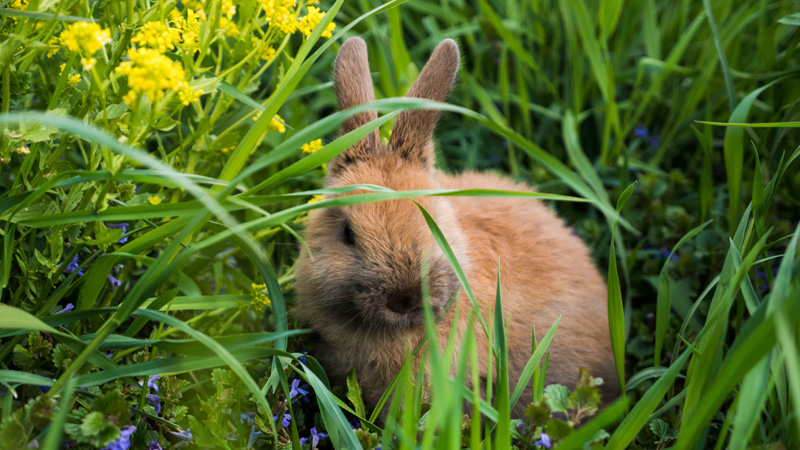
Photo by Ансплэш Степана on Unsplash
Rabbits are herbivorous animals with delicate digestive systems. While they enjoy a variety of fruits and vegetables as part of a balanced diet, it's important to understand that not all produce is safe for them to consume. Some fruits and vegetables can be toxic and cause harm to your beloved bunny.
In this article, we will provide you with a comprehensive list of fruits and vegetables that are toxic to rabbits, enabling you to effectively protect their health and well-being.
Toxic Fruits for Rabbits
Avocado: Avocado contains a substance called persin, which is toxic to rabbits. It can cause digestive issues, respiratory distress, and even heart problems. Avoid feeding any part of the avocado fruit or plant to your rabbit.
Cherries: The pits and seeds of cherries contain cyanide, which is poisonous to rabbits. If your rabbit accidentally ingests cherry pits, it can lead to serious health complications. Always remove the pits and seeds before offering cherries to your bunny.
Peaches and Plums: Peach and plum pits also contain cyanide, making them unsafe for rabbits. Avoid giving your bunny peaches or plums altogether to prevent any accidental ingestion of the toxic pits.
Walnuts: While not technically a fruit, walnuts are frequently included in rabbit diets. However, they can be toxic to rabbits due to their high-fat content, which can cause digestive problems and lead to obesity. It's best to exclude walnuts from your rabbit's diet.
Toxic Vegetables for Rabbits
Potato and Tomato Leaves/Stems: As mentioned earlier, the leaves and stems of potatoes and tomatoes contain a toxic compound called solanine. This substance can be harmful to rabbits and cause severe digestive disturbances. Make sure to remove all green parts when offering these vegetables to your bunny.
Onions, Chives, and Leeks: Vegetables from the onion family, including onions, chives, and leeks, contain compounds known to cause anemia in rabbits. These compounds destroy red blood cells, leading to a condition called Heinz body anemia. Keep all onion-related vegetables away from your bunny to prevent any potential health issues.
Rhubarb: Rhubarb contains high levels of oxalates, which are toxic to rabbits. Ingesting rhubarb can cause kidney damage and other serious health complications. Avoid feeding any part of the rhubarb plant, including the stems and leaves, to your rabbit.
Beans: Beans, such as kidney beans, can be toxic to rabbits if ingested in large quantities. Beans contain a protein called lectin that is difficult for rabbits to digest properly. Excessive consumption of beans can lead to digestive upset and discomfort.
Nightshade Plants: Certain vegetables belonging to the nightshade family, including eggplants, peppers, and tomatoes, contain alkaloids that can be toxic to rabbits. While small amounts of ripe tomatoes are generally safe, it's best to avoid feeding eggplants and peppers to your bunny to prevent any potential health issues.
Conclusion
As responsible pet owners, it's essential to be aware of the fruits and veggies that are toxic to rabbits to ensure their health and well-being. Avoid feeding rabbits avocado, rhubarb, tomato leaves and stems, potato tops and eyes, onions, chives, leeks, spinach, and chocolate to prevent any potential harm. Instead, focus on offering rabbits a diet rich in safe and nutritious fruits and vegetables such as apples, carrots, bell peppers, and leafy greens.
Always introduce new foods to your rabbit's diet gradually and monitor them for any signs of digestive upset or adverse reactions. Consult with a veterinarian if you have any concerns about your rabbit's dietary needs or health.
You May Also Like
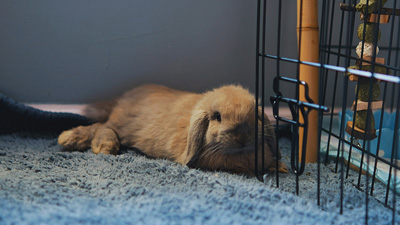 Rabbit BreedsDo Rabbits Smell If Kept Indoors?
Rabbit BreedsDo Rabbits Smell If Kept Indoors?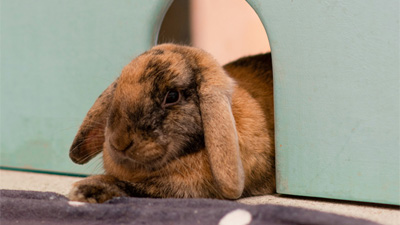 Rabbit BreedsWhat Is The Friendliest Breed of Rabbit?
Rabbit BreedsWhat Is The Friendliest Breed of Rabbit?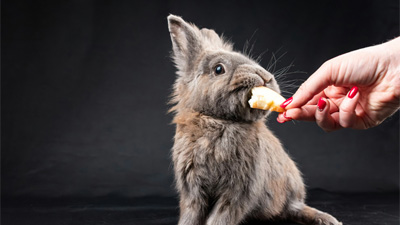 Rabbit BreedsWhich Type of Rabbit is Best for a Pet?
Rabbit BreedsWhich Type of Rabbit is Best for a Pet? Rabbit BreedsWhat Breed Of Rabbit Sheds The Least?
Rabbit BreedsWhat Breed Of Rabbit Sheds The Least?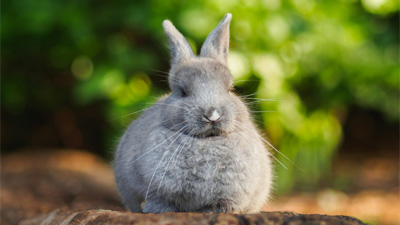 Rabbit Breeds6 Low-Maintenance Rabbit Breeds For Busy Lifestyles
Rabbit Breeds6 Low-Maintenance Rabbit Breeds For Busy Lifestyles Rabbit BreedsWhich Rabbits Are Easiest To House Train? Netherland Dwarf
Rabbit BreedsWhich Rabbits Are Easiest To House Train? Netherland Dwarf